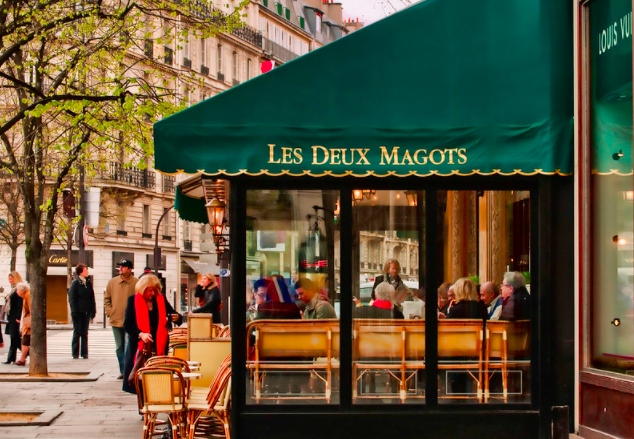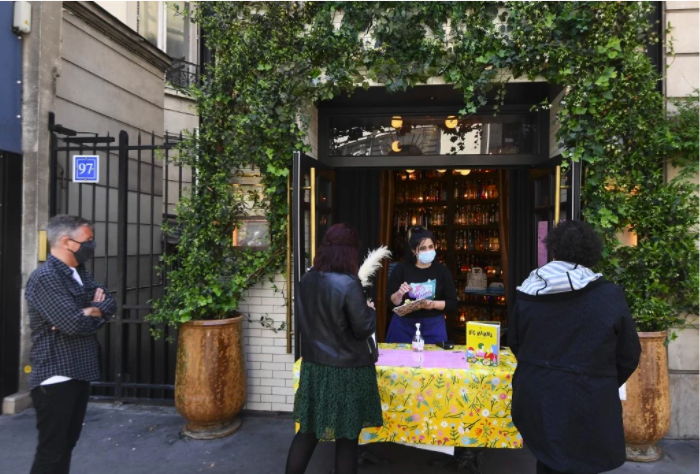French Gastronomy & Culture: reflection on the Covid-19 disaster
French dining is about so much more than satiating hunger pangs. French dining is a luxurious experience: it’s a ceremony that celebrates the food in its own right.

Gastronomy culture is an overwhelmingly collective affair
Indeed, consuming the food is only the denouement in the multi-layered narrative of French dining. It also comprises an hors d’œuvre of lengthy discussion, generational teachings as the plat principal, an accompagnement of culinary advice, and a dessert of olfactory treats. But most of all, French gastronomy culture is an overwhelmingly collective affair. It symbolises a coming together of colleagues, friends, and family. But how has this collective gastronomical culture played out in the context of the pandemic?
Prior to the outbreak of Coronavirus, Article R.4428-19 of the French labour code banned employees from eating lunch at their desks, stating that:
Il est interdit de laisser les travailleurs prendre leur repas dans les locaux affectés au travail.
Employees could, in theory, face a fine if they are discovered to be doing so. Not only was this an effort to prevent employees from being overworked, but also to encourage the basic premises of French gastronomy culture. The idea was that no matter how busy, all employees should be able to find time in their day to enjoy food with their colleagues.
Is Covid-19 infringing upon the French gastronomic culture?
However, during the confinement, the government was forced to rethink this rule in order to minimise the spread of Covid-19 and to encourage the growing trend of télétravail. Whilst this was undoubtedly the best way to proceed, it altered a part of French culture so intrinsic to France’s genetic makeup. Not only are employees able to eat at their desks, but as office life is modernising, many choose not to come into the office at all.
This trend was also exacerbated by the closure of restaurants and cafes during long periods of confinement.
Eating out is a crucial element not only of the collective dining experience but also of France’s cultural scene.
The value of French gastronomy and the arts

Indeed, historically, some of the most celebrated literary and intellectual icons of French arts and culture convened in some of Paris’s most traditional restaurants. Take Les Deux Magots, for example, where Jean-Paul Sartre and Simone de Beauvoir famously organised their rendezvous. The renowned café littéraire inspired literary exchange, erudite discussion, and avant-garde thinking. But above all, it became synonymous with collective thought, which was harnessed within a firmly traditional gastronomical setting.
French cafes and restaurants are not only the bastions of French gastronomy culture but indirectly of arts and literary culture; they are intertwined. Hence the prolonged closures threaten French identity even more profoundly than its economic consequences initially might suggest.
French gastronomic culture – is it fragile?

Whilst the collective has always been prioritised over the individual when it comes to French gastronomy culture, this is a tradition that is now under threat.
And whilst restaurants and cafes are slowly finding their feet in this post-confinement period, it remains to be seen whether this collective culture can ever truly be restored. Will the passe sanitaire continue to hinder it?
Ultimately, the return to collective gastronomy culture is not only contingent on government guidelines, but also a need for connection and the wider desire for authenticity; for conserving traditions that may have otherwise been altered.
The confinement was a serious threat to the economy, but also to the culture of collaboration, collectivity, and connection. And whilst we are undeniably eager to return to our pre-pandemic habits, one wonders about the long-term impacts.
Perhaps the French gastronomic culture was already under threat by the ephemerality of modern life, even before the appearance of Covid-19.
What are your thoughts about the long-term impacts of Covid-19 on the French gastronomic culture? What do you think has changed, if anything? Please share your thoughts in the comments section below.
References & Notes:
- Code du travail – Article R4228-19 (codes-et-lois.fr)
- Télétravail en mode Covid-19 : on vous guide ! (travail-emploi.gouv.fr)
- L’Histoire des Deux Magots – Café Restaurant à Paris (lesdeuxmagots.fr)
- Tout savoir sur le pass sanitaire et les mesures à – Ville de Paris
Image credits:
1. Les Deux Magots – by Roger Salz via flickr
2. Montogueill – by Onosill Bill via flickr
3. People wearing masks to buy take-away food Paris by AFP via Local.fr
4. PArisian restaurant reopening in 2021 by AFP via local.fr






